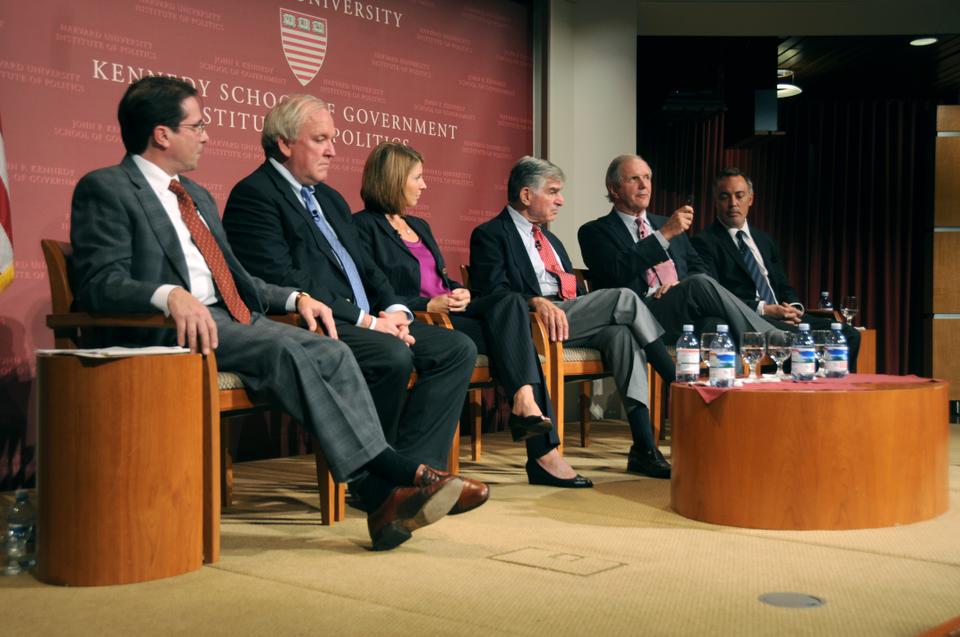
News
‘Deal with the Devil’: Harvard Medical School Faculty Grapple with Increased Industry Research Funding

News
As Dean Long’s Departure Looms, Harvard President Garber To Appoint Interim HGSE Dean

News
Harvard Students Rally in Solidarity with Pro-Palestine MIT Encampment Amid National Campus Turmoil

News
Attorneys Present Closing Arguments in Wrongful Death Trial Against CAMHS Employee

News
Harvard President Garber Declines To Rule Out Police Response To Campus Protests
IOP Panelists Discuss Presidential Debates

Former Mass Governor and Democratic presidential candidate Michael S. Dukakis and former ABC World News Anchor Charles Gibson were among five panelists who spoke at an Institute of Politics forum last night about the role of the presidential debate in the American political process.
The question of what place television debates hold in the current political process seemed to loom on the panelists’ minds from the beginning, when moderator Carl M. Cannon—the executive editor of PoliticsDaily.com—showed a clip from the first televised presidential debate, held between John F. Kennedy ’40 and Richard Nixon in 1960.
The forum quickly evolved into a debate itself, centering on the future of campaign politics in a world permeated by social networking sites such as Facebook, Twitter, and YouTube.
The panelists shared their different perspectives on the presidential debate process: Mike McCurry, co-chairman of the Commission on Presidential Debates and former press secretary to former President Bill Clinton, Senior Advisor to the McCain-Palin presidential campaign Nicolle Wallace, and Personal Democracy Forum founder Andrew Rasiej also took part in the forum.
Rasiej, who voiced the most enthusiasm for new social networking technologies, said that these tools will enable American citizens to not only feel more engaged with the candidates themselves, but also feel more compelled to actively participate in the political and campaign process.
“It’s about reinventing democracy in the 21st century,” Rasiej said.
Other panelists were more skeptical of the viability of social networking as a political strategy. McCurry insisted on the importance of televised debates between candidates in allowing voters to watch their leaders interact with each other and speak on a public stage.
Later, when Rasiej brought up the use of technologies in the 2008 presidential debates that allowed viewers to submit questions directly to candidates, Gibson pointed out how many such opportunities for direct dialogue became dominated with comments and questions that were pure “vitriol.”
Conflicting evidence emerged when Rasiej asked audience members how many of them have Twitters and Facebooks, and how many would feel more engaged with a candidate through these mediums. The show of hands was a clear majority in both cases.
Simon M. Thompson ’14 echoed the majority sentiment, citing Obama’s use of social networking to raise funds from a broad base of young voters as just another example of how such websites could make voters feel more engaged in the political process.
Want to keep up with breaking news? Subscribe to our email newsletter.
